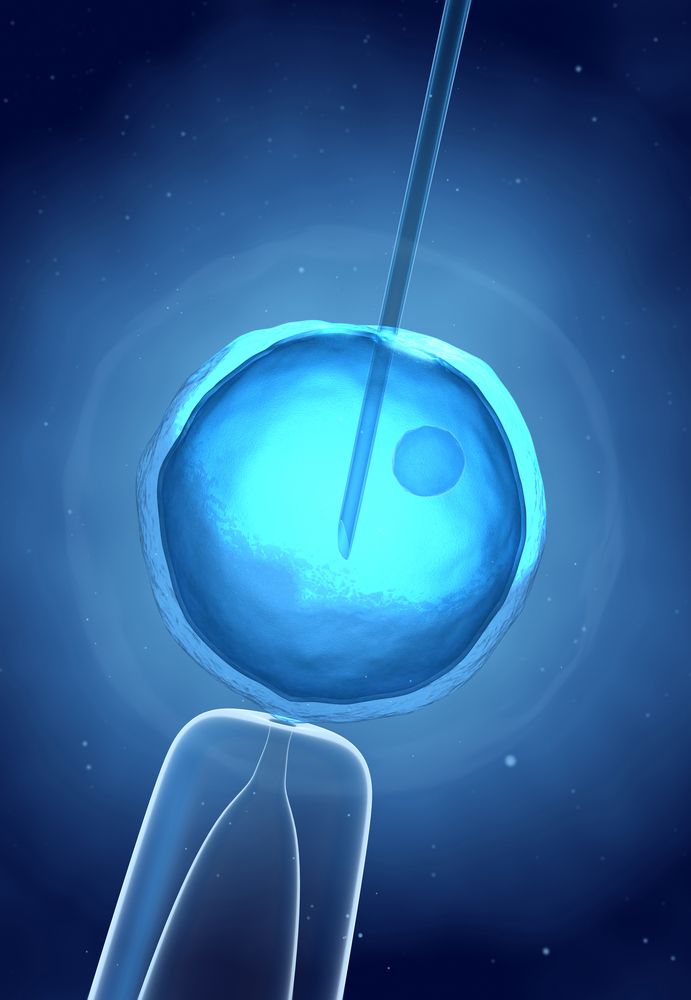Understanding Fertility Treatments: ICSI vs. Normal IVF
 In vitro fertilization, or IVF, is a fertility treatment in which the fertilization of the egg occurs outside of the body, making it possible for many couples who have had difficulty conceiving start a family.
In vitro fertilization, or IVF, is a fertility treatment in which the fertilization of the egg occurs outside of the body, making it possible for many couples who have had difficulty conceiving start a family.
Although IVF has helped many people become parents, it doesn't work for everyone. For some patients, the addition of intracytoplasmic sperm injection, or ICSI, may improve the chances of getting pregnant with IVF.
Drs. Victoria Maclin and Stephanie L. F. Gustin are dedicated to giving each patient the best chance to conceive by helping patients decide between ICSI versus normal IVF during consultations at our Omaha, NE practice. Contact Heartland Center for Reproductive Medicine to find out which fertility treatment is right for you.
How Are ICSI and Normal IVF Different?
Although ICSI and IVF are both fertility treatments, they are fundamentally different. Let's start to understand how they differ by breaking them down in simple terms.
- IVF: IVF, or in vitro fertilization, is a process where sperm is introduced to a woman's egg outside of the body.
- ICSI: ICSI, or intracytoplasmic sperm injection, may be performed in addition to IVF to inject an individual sperm into the egg. This can increase the chance of fertilization.
Comparing the Treatment Process
One of the primary ways in which ICSI and normal IVF differ are in their treatment processes. The normal IVF process is less complex than ICSI and as such, sometimes does not work for couples with certain fertility issues. Let's take a closer look at both treatment processes.
The Normal IVF Process
During the normal IVF treatment process, a woman's ovulation cycle is closely monitored and stimulated to release multiple eggs using special fertility medications. When the ovaries release the eggs during ovulation, the eggs are removed from the woman's body and prepared for fertilization.
Sperm taken from the woman's partner or a donor are placed in a liquid along with the eggs in a laboratory setting. The sperm and egg are then left alone with hopes that the sperm will find its way into the egg as it would naturally do within the body.
ICSI and a Different IVF Process
When IVF is used with ICSI, the process is slightly different. The woman's eggs and the man’s sperm are collected in the same manner as normal IVF. Once it's time to fertilize the egg, the IVF process used in ICSI treatment begins to differ from normal IVF.
During the IVF process for ICSI, the odds of the sperm coming into contact with an egg are not left to chance. Instead, an individual sperm is physically placed within an individual egg using a special glass tube. Because individual sperm are placed within each egg, ICSI treatment can yield more successful results than normal IVF for some couples.
Determining the Right Treatment
Because fertility issues can be rooted in one or both partners, it's important for both partners to be evaluated by a reproductive endocrinologist. Once an evaluation is complete, the treatment most likely to result in successful conception can then be performed. For some people, this will mean normal IVF while others may be better candidates for ICSI.
Some things that may make a couple choose ICSI over normal IVF include:
- Male infertility issues, such as low sperm count or low motility
- Deciding to have children after a vasectomy
- Repeated unsuccessful IVF treatments
- Screening for certain genetic conditions
Schedule a Consultation
If you would like more information about fertility treatments or to learn what options may be right for you, please call our friendly staff at (402) 717-4200 to schedule a consultation.






